The president of National University of Health Sciences, Dr. James F. Winterstein, can look back on changes in the 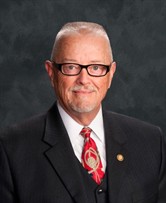 chiropractic profession with more perspective now that he is close to retiring. Counting his time as a student and faculty member, in addition to his 27 years as president, Winterstein has seen the progress of the profession and NUHS over the last half-century.
chiropractic profession with more perspective now that he is close to retiring. Counting his time as a student and faculty member, in addition to his 27 years as president, Winterstein has seen the progress of the profession and NUHS over the last half-century.
Born in 1943, Winterstein says, “At age four I told the town physician, ‘When I grow up, I’m going to be a doctor just like you!’ The doctor’s answer was ‘Well you better save your money, boy, because medical school costs $2000!'”
The rising cost of a medical education is just one of many changes Dr. Winterstein has seen since he entered the National College of Chiropractic in 1964.
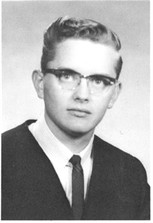 Back when he was a student in the 60s, antagonism toward the profession was much higher than it is today. Before starting his DC degree, he had trained as an X-ray tech in the Army. When his radiologist heard he was planning to attend chiropractic school, he screamed: “They’re quacks!” and dragged Winterstein to an orthopedic surgeon who also berated him and tried to talk him out of it.
Back when he was a student in the 60s, antagonism toward the profession was much higher than it is today. Before starting his DC degree, he had trained as an X-ray tech in the Army. When his radiologist heard he was planning to attend chiropractic school, he screamed: “They’re quacks!” and dragged Winterstein to an orthopedic surgeon who also berated him and tried to talk him out of it.
While a student at National, he worked nights as an X-ray tech supervisor at nearby Elmhurst Hospital. He was forced to keep his DC student status a secret there for three years, since one of the radiologists in the department was extremely hostile to DCs. The department even posted a notice declaring that anyone dating chiropractic students from the nearby college would be fired, since it clearly showed a pattern of poor judgment.
His night job highlights another difference between chiropractic students of his day and those of today: “Most of us worked,” he says. “Our tuition costs were lower, but we didn’t have financial aid back then, and many of us had families to support.”
In fact, Winterstein deftly juggled three jobs while he was a full time DC student. He not only worked nights at the hospital, he also worked reading X-ray films for National’s clinic radiology reading service. And on top of this, he drove a school bus every morning and afternoon. He and his wife also had two children at the time, which made for a very busy schedule.
The changes to the chiropractic profession that he regrets are those that followed when DCs started accepting third party payments. “Before that, everything was a straightforward interaction between the doctor and the patient. Now our services must match certain codes and stipulations given by those who have more interest in their bottom line than in our profession or the best interests of the patient.” He feels this issue is even more problematic today as society faces drastic changes in health care policy. He worries, since he feels the profession’s opponents will continue to try to minimize chiropractic medicine’s role in health care.
If Winterstein could make one change to the chiropractic profession, it would be: “Broaden our scope of practice. When
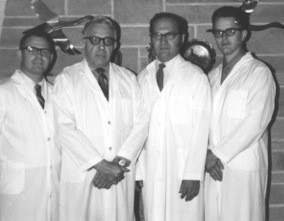
Don Tomkins, Joseph Janse, Leonard Richie, and James Winterstein
decision-makers think ‘doctor,’ they think of someone who can prescribe. We need the ability to prescribe not only to take better care of our patients, and help lower costs in the overall health care delivery system in our country, but also to gain social and cultural authority.”
His biggest reason for optimism for the profession lies in the new science called mechano-biology: how mechanical input affects human physiology down to the cellular and biochemical level. “When you work on the fascia, those fibrocytes communicate directly with one another, and they invest every organ in the human body,” he says. “What we do biomechanically has an effect that goes far beyond the bones, joints, ligaments and muscles. This has been the basis for the profession since the beginning.”
In case you heard a “straight” tone in that remark, be advised: “Limiting the broad potential of mechano-biology by a concept like ‘subluxation’ is a mistake,” he adds. “Mechano-biology is far bigger than a ‘bone out of place.’ We don’t know enough yet, and this field opens up exciting possibilities for research.”
The best advice Winterstein ever received is the advice he gives graduates during virtually every commencement address he makes: “Take care of your patients and they’ll take care of you,” he says. “Janse was the one that told me that. It’s good advice because it’s based on sound principles of ethics and hard work.”
Winterstein has additional timeless advice for the new DC today: “Be ethical in all matters and be an engaged citizen in your community. Keep your overhead low and charge reasonable fees. Be present when patients need you and treat your patients as if they are your father, mother, sister, brother, spouse, or child. Become engaged in your profession. Read voraciously every day and never stop learning.”

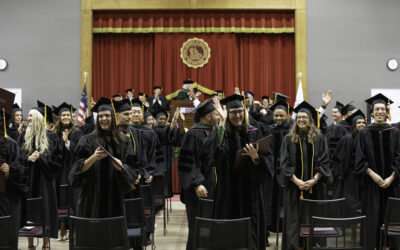
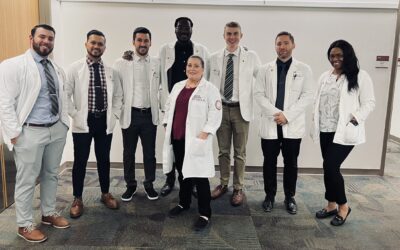
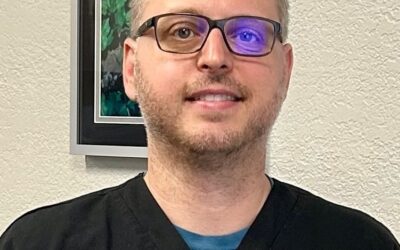
0 Comments